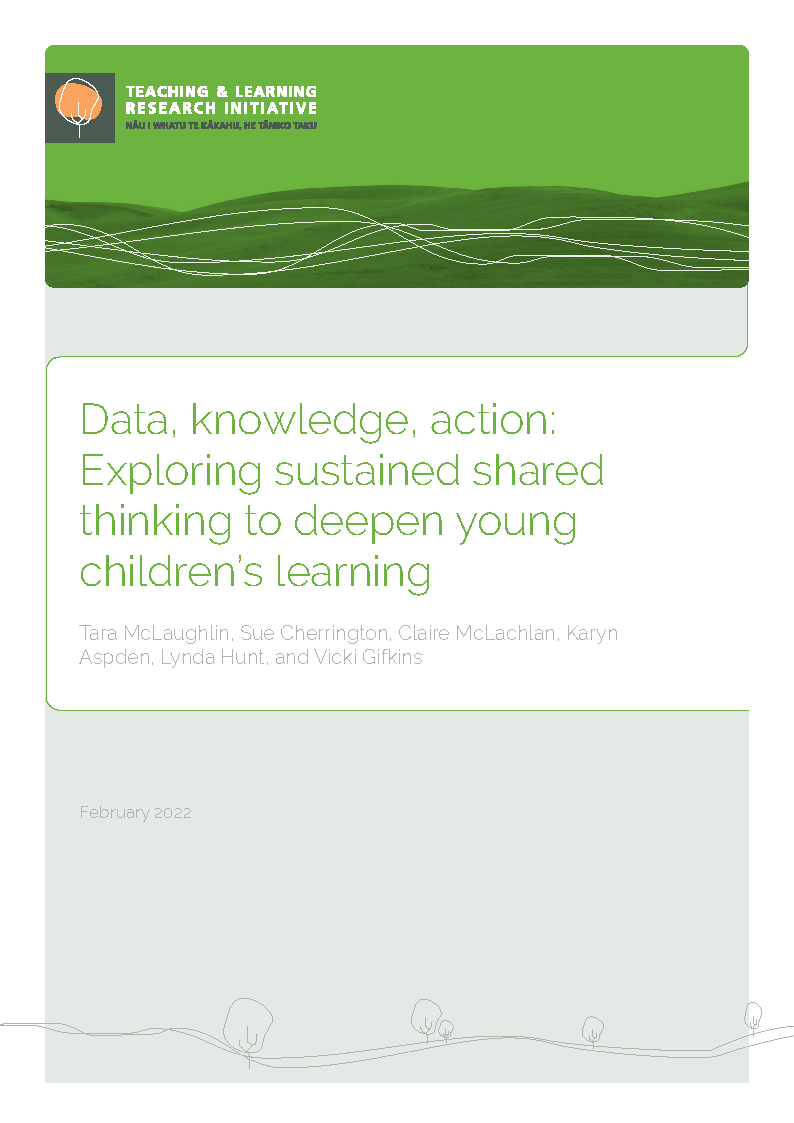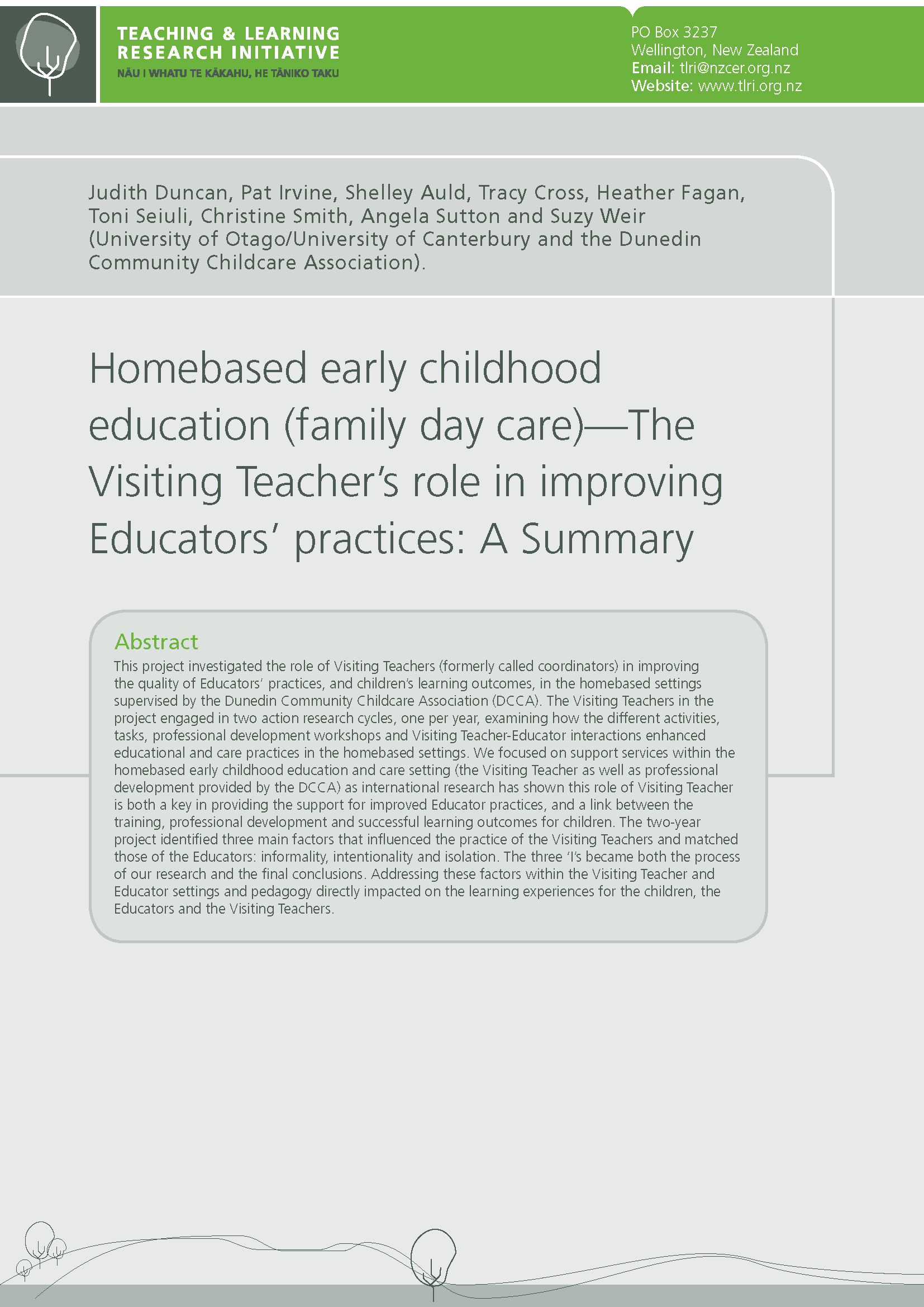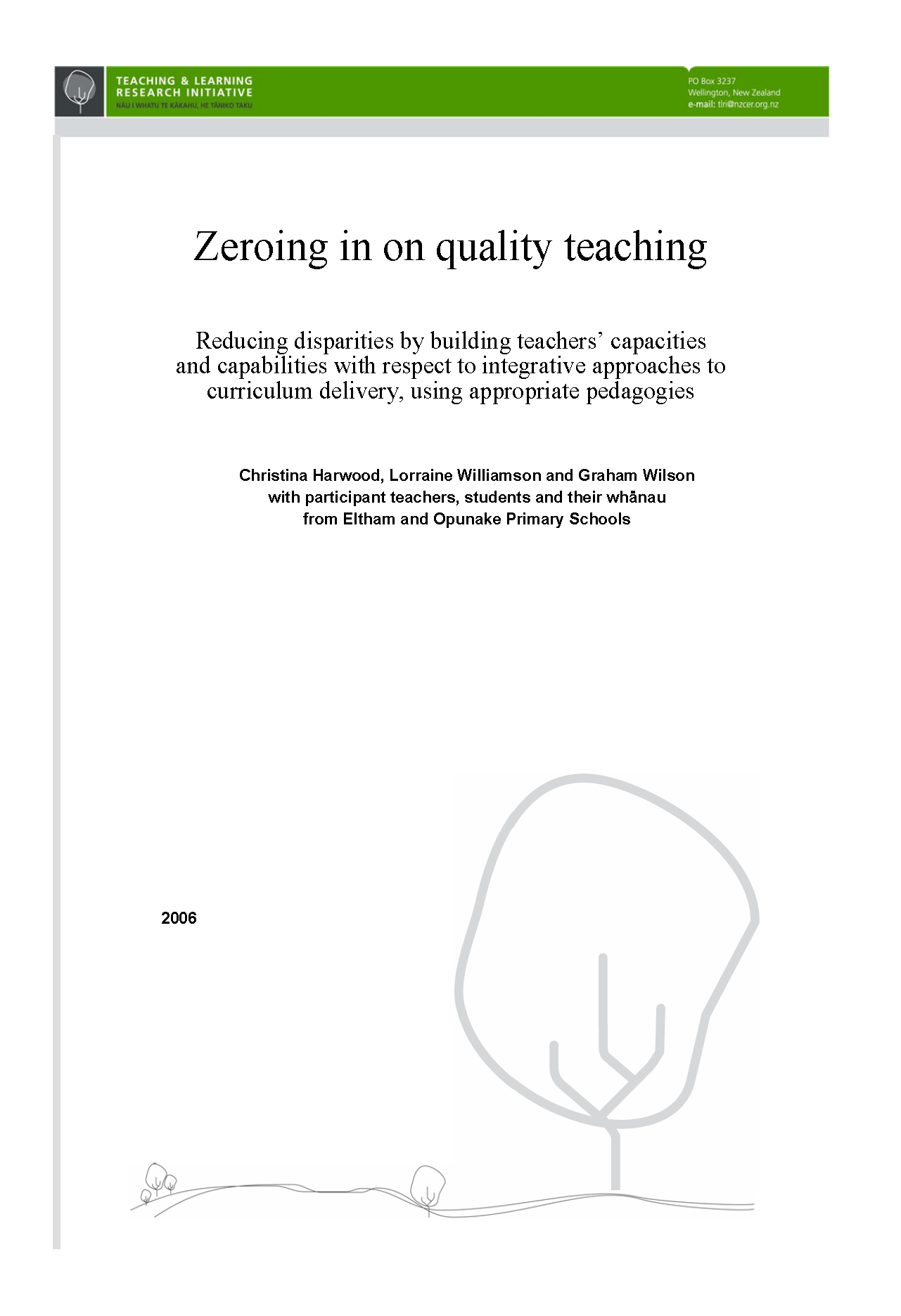
Data, knowledge, action: Exploring sustained shared thinking to deepen young children’s learning
Introduction and Background This TLRI project is part of a larger programme of research referred to as the Data, Knowledge, Action project. The Data, Knowledge, Action programme of research focuses on the development and use of innovative and authentic data systems to help early childhood teachers in Aotearoa New Zealand examine young children’s curriculum experiences and strengthen their teaching practice. To date the programme comprises of: a) a pilot study undertaken in 2017 to develop and trial innovative and authentic data systems to investigate children’s experiences of curriculum; b) a 18-month project funded by the Teacher Led Innovation Fund (TLIF) involving teacher-led inquiries into children’s experiences (July 2018 – December 2019;



